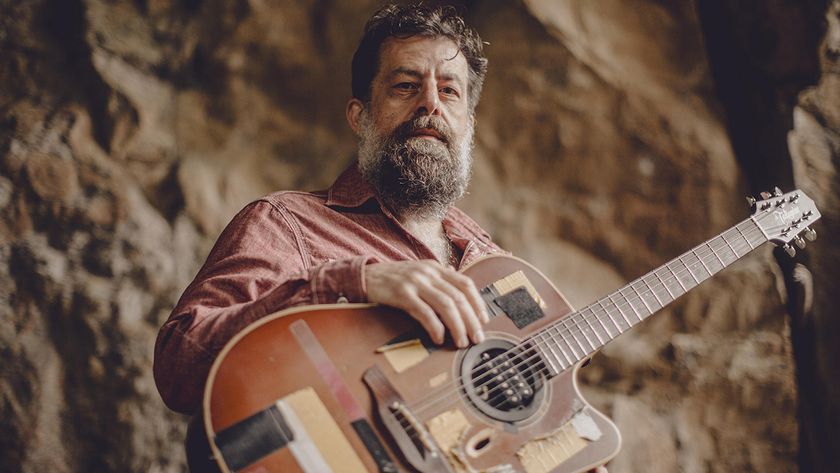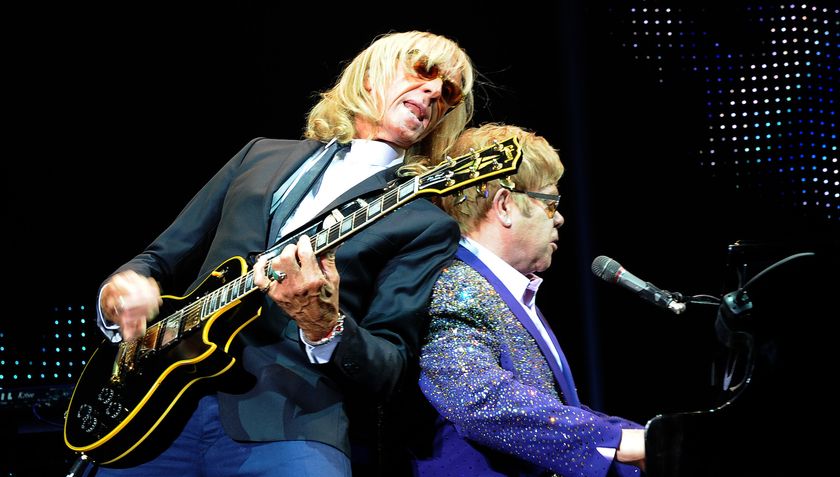Michael Wilton: Dear Guitar Hero
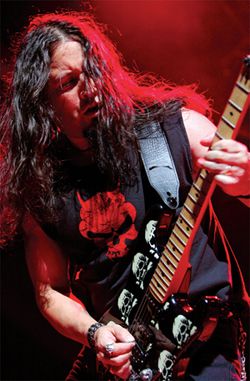
He’s an influential prog-rock guitarist whose band has just released its 10th studio album. But what Guitar World readers really want to know is…
Who are your guitar heroes and what was the first song you learned to play? —Dylan Wiley
The first guitar song I played was “Bring It On Home” from Led Zeppelin II. My heroes back then were guys like Jimmy Page, Jimi Hendrix, Al Di Meola, John McLaughlin, Carlos Santana, Ritchie Blackmore and Michael Schenker.
What is the story behind the name Queensrÿche? —iChavira
When we started back in the early Eighties we were called the Mob. We had management and everything, but it turned out that someone else already had that name, so we had to change it. My friend Chris DeGarmo, our first guitar player, had a song called “Queen of the Reich,” which was [inspired by] a nightmare that he’d had. We combined “queen” and “reich” and gave the result a new spelling. There weren’t many bands in the Q section of record stores back then, so that helped us stand out.
What’s your relationship like these days with Chris DeGarmo? I’m surprised he hasn’t rejoined the band on a permanent basis. —Gilda Texter
Chris and I went to junior high and high school together, so I’ve known him for a long time, and we’re still friends. In 1997, he decided that he needed a career change, so he went down to Texas and studied to become an airplane pilot. It paid off, and now he’s a full-time pilot for a private firm. He still plays guitar, though.
Get The Pick Newsletter
All the latest guitar news, interviews, lessons, reviews, deals and more, direct to your inbox!
Can you talk about the recording of Queensrÿche’s 1983 self-titled EP, which put the band on the map with the underground metal scene. —J.J. Beauford
We had four songs that we recorded at a local studio called Triad Studios. It was an eye-opener for us to be in such a big room and use analog tape and a big mixing board. We had a lot of fun, and it was a learning experience. Then we pressed about 20,000 EPs. Soon after, we got this amazing review in Kerrang! magazine, and that’s when everything took off. We all had day jobs—I was a resistor twister at this electronics place—and all of a sudden I hear “Queen of the Reich” on the local radio station. [laughs] People thought it was some European band. They didn’t realize it was us!
I was surprised to hear that [guitarist] Mike Stone left before you guys recorded your new album, American Soldier. What was the story there? Is anyone replacing him? —Tom Gunnett
Basically, that was a management decision. He’s moved on to Speed X, which is his other band, and we just got a local replacement, Parker Lundgren. Live, I tackle all of the leads, solos and Chris [DeGarmo]’s parts, and I basically taught the rest of the parts to Lundgren, who’s just 23 and a real YouTube junkie. [laughs]
Is it true that you recorded all the guitar parts on the new album? That’s awesome! What was that process like? —Sean McKenzie
Yes, I recorded them. I have to say that it was an amazing experience doing double-duty. For some reason everything comes to us in the 11th hour, when the demos are being made. But I was really on top of it. If a thing changed here or there, the song’s mood would, of course, change. Then we’d bounce that MP3 to everyone’s studio. We had to be careful because if it wasn’t managed properly, everyone would be learning different mixes.
How did you guys come up with the military concept for your new record? —Hollis Tarpin
It came from our singer, Geoff Tate. We noticed from touring during the past six or seven years that a lot of our fans are from the military, plus a lot of our relatives are in the military or have served. Geoff got the idea of speaking to them and getting their stories, and the seed for American Soldier was sown. We interviewed a bunch of soldiers and recorded the dialog. It was quite an adventure. By doing this we made a lot of friends in the military and hopefully opened up doors for us to play for the troops in far away places, like Iraq.
Queensrÿche have so many amazing albums under their belt. Do you ever feel pressured by your own legacy? —Yi Lin
I’m just thankful that I can do this and make a living. You just have to believe what you feel and try not to be consumed by the media and other people’s opinions. It’s only a matter of connecting with the guitar and getting in touch with the creativity that’s embedded in your DNA. It’s cerebral. I kind of get lost in it, and that’s what I love.
As far as trying to do better than something we’ve done, maybe it’s just better to look at it as a snapshot in time. [Playing music] is always a work in progress, and I haven’t “made it” yet, at least in my eyes. It’s always a challenge for me, especially if you’re hanging out with these young shredders that are just super fast. It’s always fun to go to NAMM and hang out with Alexi [Laiho] from Children of Bodom and Gus G. from Firewind and watch those guys play. As far as Queensrÿche goes, the fact that we’re still making records and still have people come to our shows is just a blessing. But I always try to stay in the “now” and just forge ahead and not get caught up with where I’ve been.
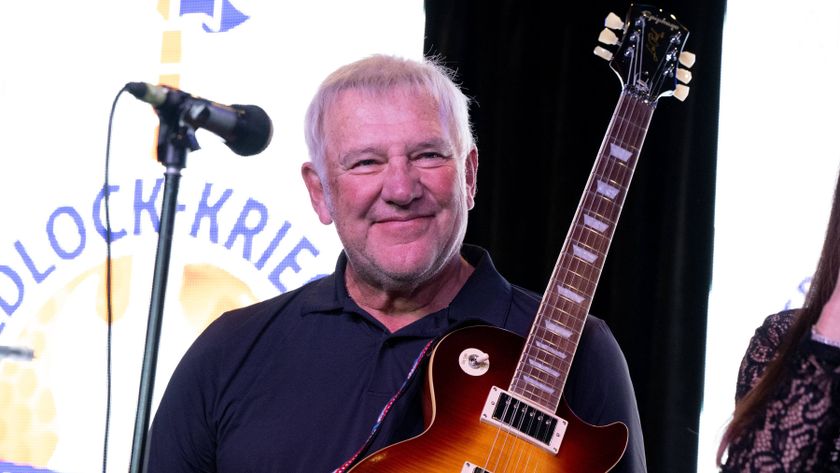
“It’s a whole new generation in sound. There’s nothing lacking”: Alex Lifeson reveals the gear that has finally converted him to digital modeling
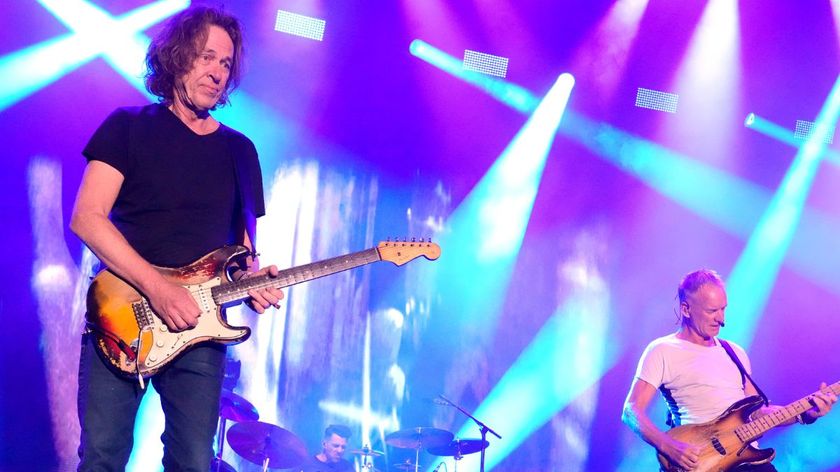
“The Strat is the most versatile electric guitar that there is; but the Les Paul is a perfect instrument”: Sting guitarist Dominic Miller weighs in on the Strat vs. Les Paul debate – says the Strat loses despite being a more versatile instrument








